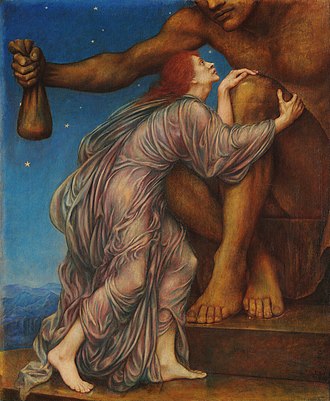Seven deadly sins
The Seven Deadly Sins, also known as the Capital Vices or Cardinal Sins, is a classification of vices that has been used since early Christian times to educate and instruct followers concerning fallen humanity's tendency to sin. The concept has been used in Christian ethics to help people curb their inclinations before they could lead to more serious crimes or sins. The seven deadly sins are pride, envy, gluttony, lust, anger, greed, and sloth.
Origins and Development
The concept of the seven deadly sins is an amalgamation of Christian teachings and Greek philosophy, which aimed to categorize and restrain human misconduct. The list was initially formulated in the 4th century by Evagrius Ponticus, a Christian monk, who listed eight evil thoughts. Later, Pope Gregory I revised the list to the seven deadly sins in the 6th century, merging envy and sadness, and adding pride to the list.
Description of the Sins
Each of the seven deadly sins describes a particular form of moral failing or character flaw that can lead to other sins and harmful behaviors. They are considered deadly because indulging in them can lead to spiritual death and damnation.
Pride
Pride is considered the original and most serious of the seven deadly sins, and indeed the ultimate source from which the others arise. It is the desire for excessive recognition and respect from others, often at the expense of humility and acknowledgment of one's own limitations.
Envy
Envy involves feeling discontent or covetousness with regard to another's advantages, success, or possessions. It can lead to resentment and other sinful behaviors.
Gluttony
Gluttony is an excessive and ongoing consumption of food or drink, or an overindulgence in anything to the point of waste.
Lust
Lust is an intense desire or need. Though it is most often associated with sexual desire, it can also encompass any uncontrolled desire such as for money, power, or other objects of passion.
Anger
Anger, also known as wrath, is an intense emotional response or feeling of animosity towards someone or something you feel has deliberately done you wrong.
Greed
Greed, or avarice, is the excessive desire for more than one needs or deserves, especially with respect to material wealth.
Sloth
Sloth is the avoidance of physical or spiritual work. It is the failure to utilize one's talents and gifts, often leading to a failure to fulfill one's potential.
Cultural Impact
The seven deadly sins have had a significant impact on Western culture, appearing in various forms of art, literature, and media. They have been the subject of paintings, books, films, and plays, serving as a framework for storytelling and moral caution.
See Also
Transform your life with W8MD's budget GLP-1 injections from $125.
W8MD offers a medical weight loss program to lose weight in Philadelphia. Our physician-supervised medical weight loss provides:
- Most insurances accepted or discounted self-pay rates. We will obtain insurance prior authorizations if needed.
- Generic GLP1 weight loss injections from $125 for the starting dose.
- Also offer prescription weight loss medications including Phentermine, Qsymia, Diethylpropion, Contrave etc.
NYC weight loss doctor appointments
Start your NYC weight loss journey today at our NYC medical weight loss and Philadelphia medical weight loss clinics.
- Call 718-946-5500 to lose weight in NYC or for medical weight loss in Philadelphia 215-676-2334.
- Tags:NYC medical weight loss, Philadelphia lose weight Zepbound NYC, Budget GLP1 weight loss injections, Wegovy Philadelphia, Wegovy NYC, Philadelphia medical weight loss, Brookly weight loss and Wegovy NYC
|
WikiMD's Wellness Encyclopedia |
| Let Food Be Thy Medicine Medicine Thy Food - Hippocrates |
Medical Disclaimer: WikiMD is not a substitute for professional medical advice. The information on WikiMD is provided as an information resource only, may be incorrect, outdated or misleading, and is not to be used or relied on for any diagnostic or treatment purposes. Please consult your health care provider before making any healthcare decisions or for guidance about a specific medical condition. WikiMD expressly disclaims responsibility, and shall have no liability, for any damages, loss, injury, or liability whatsoever suffered as a result of your reliance on the information contained in this site. By visiting this site you agree to the foregoing terms and conditions, which may from time to time be changed or supplemented by WikiMD. If you do not agree to the foregoing terms and conditions, you should not enter or use this site. See full disclaimer.
Credits:Most images are courtesy of Wikimedia commons, and templates, categories Wikipedia, licensed under CC BY SA or similar.
Translate this page: - East Asian
中文,
日本,
한국어,
South Asian
हिन्दी,
தமிழ்,
తెలుగు,
Urdu,
ಕನ್ನಡ,
Southeast Asian
Indonesian,
Vietnamese,
Thai,
မြန်မာဘာသာ,
বাংলা
European
español,
Deutsch,
français,
Greek,
português do Brasil,
polski,
română,
русский,
Nederlands,
norsk,
svenska,
suomi,
Italian
Middle Eastern & African
عربى,
Turkish,
Persian,
Hebrew,
Afrikaans,
isiZulu,
Kiswahili,
Other
Bulgarian,
Hungarian,
Czech,
Swedish,
മലയാളം,
मराठी,
ਪੰਜਾਬੀ,
ગુજરાતી,
Portuguese,
Ukrainian
Contributors: Prab R. Tumpati, MD






